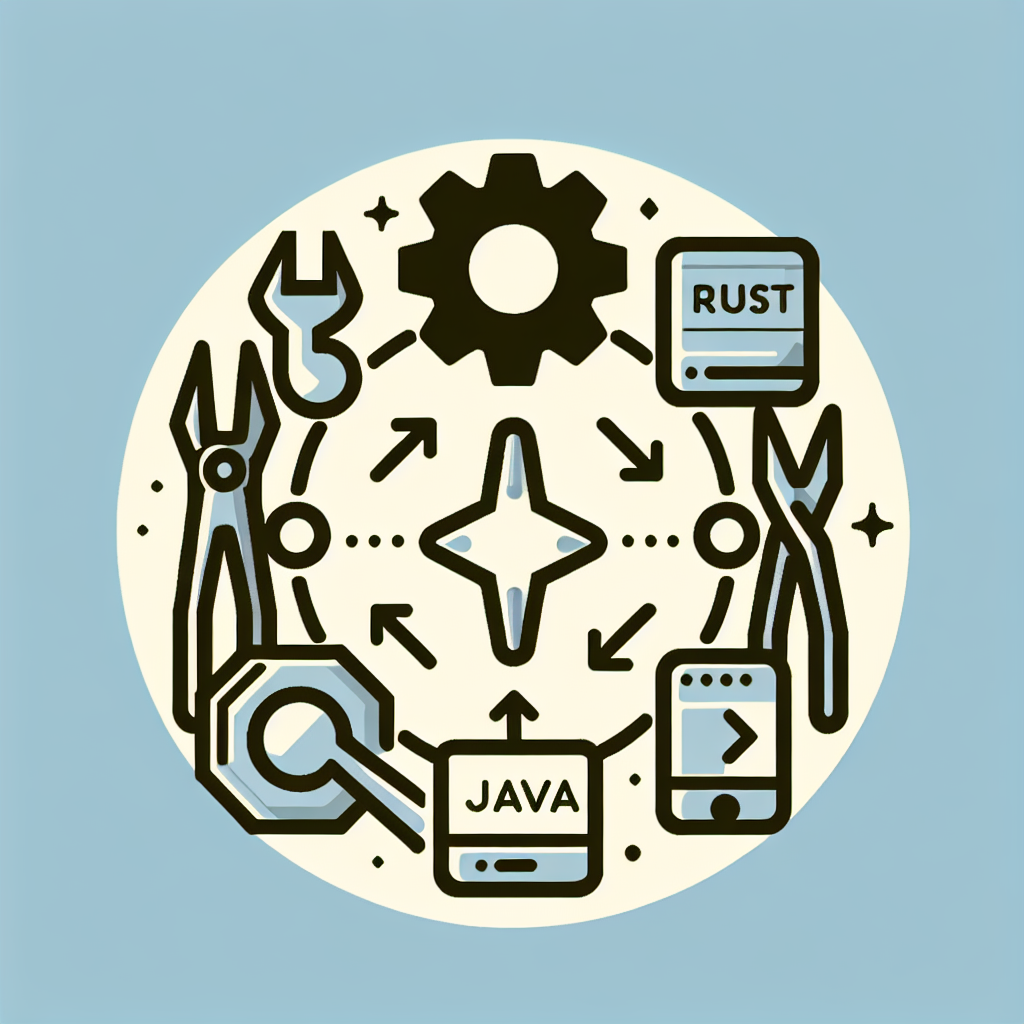Convert Java to Rust: Efficient Code Migration Tool
Effortlessly convert Java to Rust with our powerful tool. Enhance performance and streamline development. Try it now for a seamless code transition!
Source Code
Converted Code
Output will appear here...
Transform your Java code seamlessly into Rust with our Java to Rust conversion tool. Enhance performance, memory safety, and concurrency in your applications while reducing development time. Perfect for developers looking to migrate legacy Java projects to Rust’s powerful ecosystem. Keywords: Java to Rust converter, code migration, performance optimization, memory safety, concurrency improvement.

Java to Rust Conversion Tool Link to this section #
Effortlessly transition from Java to Rust with our specialized conversion tool, designed for developers seeking to leverage Rust's performance and safety benefits while maintaining Java's familiar syntax. This tool automates the process, minimizing errors and saving valuable development time.
Key Features Link to this section #
- Automated Syntax Translation: Converts Java syntax to Rust, handling data types, control structures, and object-oriented paradigms.
- Memory Management: Assists in translating Java's garbage collection to Rust's ownership model for efficient memory handling.
- Error Handling: Maps Java exceptions to Rust's robust error handling mechanisms, ensuring reliable code execution.
Benefits Link to this section #
- Performance Optimization: Rust's zero-cost abstractions and direct hardware access translate Java applications into high-performance Rust code.
- Enhanced Safety: Rust's strict compile-time checks eliminate null pointer exceptions and data races, enhancing code reliability.
- Cross-Platform Support: Seamlessly convert Java applications into Rust for deployment across diverse platforms.
Example Code Conversion Link to this section #
Below is a simple example illustrating how a Java class translates into Rust:
Java Code:
public class HelloWorld {
public static void main(String[] args) {
System.out.println("Hello, World!");
}
}
Rust Conversion:
fn main() {
println!("Hello, World!");
}
Additional Resources Link to this section #
By utilizing this tool, developers can efficiently convert their Java applications into Rust, unlocking the potential for greater performance and safety while adopting modern development practices. Whether you're migrating a legacy system or exploring Rust for new projects, this tool provides a seamless transition path.
Frequently Asked Questions
What are the main differences between Java and Rust?
Java is an object-oriented programming language that runs on the Java Virtual Machine (JVM), enabling platform independence. It features automatic garbage collection and a rich standard library. Rust, on the other hand, is a systems programming language known for its emphasis on safety and performance, providing manual memory management without a garbage collector. Rust offers ownership and borrowing concepts to ensure memory safety, making it ideal for developing high-performance applications.
Is it difficult to transition from Java to Rust?
Transitioning from Java to Rust can be challenging due to Rust's unique features like ownership, borrowing, and lifetimes, which are not present in Java. However, with a solid understanding of programming concepts and some practice, developers can adapt to Rust's syntax and paradigms. Many resources, including online tutorials, documentation, and community support, can help ease the transition.
Why might a developer choose Rust over Java?
A developer might choose Rust over Java for several reasons: Rust's performance is comparable to C/C++ due to its focus on zero-cost abstractions and its ability to produce highly optimized binaries. Rust's memory safety guarantees, without the need for a garbage collector, make it suitable for systems programming, embedded systems, and any application where performance and safety are critical. Additionally, Rust's modern language features and growing ecosystem can be appealing for new projects.